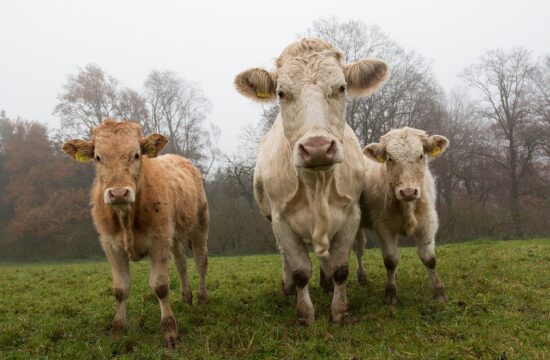Antimicrobial use in agriculture can breed bacteria resistant to first-line human defences
Drug-resistant infections are one of the most serious threats to global health, and there is an urgent need to develop new, effective antimicrobials. One promising solution could be antimicrobial peptides (AMPs). These are compounds naturally produced by most living organisms, including animals, and have important roles in innate immunity, our first line of defence against bacterial infections. However, some AMPs are also used widely in livestock production, both to control infections and as growth promoters. This has raised concerns that agricultural AMP use may generate cross-resistant bacteria that could then overcome the human innate immune response.
In this new study, led by the University of Oxford, researchers have demonstrated that evolution of such cross-resistant bacteria is not only possible, but also highly likely. To test the idea, the researchers used colistin, an AMP produced by a bacterium (Bacillus polymyxa) that is chemically and functionally similar to AMPs produced in animals. Colistin has become increasingly important as a ‘last-line of defence’ for treating infections caused by multidrug-resistant bacteria. However, extensive use of colistin in livestock production since the 1980s has driven the spread of E.coli bacteria carrying mobile colistin resistance (MCR) genes.
AMR NEWS
Your Biweekly Source for Global AMR Insights!
Stay informed with the essential newsletter that brings together all the latest One Health news on antimicrobial resistance. Delivered straight to your inbox every two weeks, AMR NEWS provides a curated selection of international insights, key publications, and the latest updates in the fight against AMR.
Don’t miss out on staying ahead in the global AMR movement—subscribe now!







